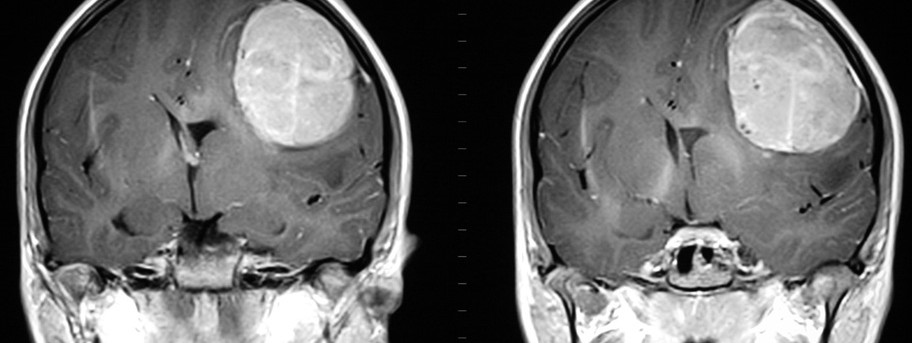The University of Nottingham
 Exchange online
Exchange online
Research Exchange
Partnership will fight childhood and adolescent brain tumours

A leading national brain tumour charity is joining forces with experts at The University of Nottingham in a £1.5 million partnership to fight brain tumours in children.
Brain Tumour UK has pledged £750,000 to support the work of experts at the University’s Children’s Brain Tumour Research Centre, funds which have been matched by a further £750,000 from the University to support this priority research area as part of ‘Impact: The Nottingham Campaign’ to raise £150 million by 2015.
The funding will enable the centre to expand on three vital areas of research into brain tumours in children — the underlying biology of brain tumours, the development and delivery of new drugs to treat them and the long-term impact they can have on society.
Professor Colin Blakemore, President of Brain Tumour UK, said: “We are very excited to be joining with the Children’s Brain Tumour Research Centre at The University of Nottingham and becoming part of its history of excellence.
“We hope that the funding from Brain Tumour UK will help to take the centre’s research to even more impressive new heights.”
The University of Nottingham’s Vice-Chancellor, Professor David Greenaway, said: “Nottingham’s vision is to be internationally recognised for our signature contributions including those in children’s brain tumour research. This generous funding from Brain Tumour UK is a fantastic endorsement of our work and a vital resource to enable us to deliver world-changing research.”
Professor David Walker, Paediatric Oncologist and co-Director of the Children’s Brain Tumour Research Centre, said: “We have faced the difficult facts of childhood brain tumours and have committed ourselves to tackling them. We have already made measurable progress and this funding will enable us to focus on the main research priorities for this devastating childhood illness.”
Brain tumours are a major cause of cancer-related deaths in childhood and adolescence, overtaking leukaemia. Indeed, 10,000 life years are lost each year and 12,000 disability life years gained. Thanks to improvements in diagnosis and treatment, due to high profile fundraising campaigns, the outcome for children diagnosed with leukaemia is much improved. However the situation for children with brain tumours is quite different for a number of different reasons.
The latest funding will allow the centre to focus its efforts in three main areas:
- The genetic basis and origins of brain tumours, understanding the full range of biological factors driving the development and behaviour of brain tumours (their molecular fingerprint) their sensitivity or resistance to treatment; and the identification of targets for novel therapy and biomarkers to allow ‘personalised’ treatment.
- Improve effectiveness of drug treatments by developing more refined and representative pre-clinical brain tumour model systems; optimising drug delivery across Blood Brain Barrier and integrated testing within clinical trials’ programmes.
- The economic impact of brain tumours, which involves working with health epidemiologists and economists to look at the longer term economic effect on society of the disabilities that affect 60 per cent of survivors after treatment.
Professor Richard Grundy said: “This transformative programme funding will secure and further enhance CBTRC’s leading international role in translational brain tumour research.”
Brain Tumour UK Chair Andy Foote said: “By joining with the University’s Impact Campaign, it offers us the chance to make the most of the funds that our supporters have so generously invested and gives us the opportunity to get an incredible bang for our buck.”
The University’s Impact Campaign aims to raise more than £150 million over the next four years for a series of high-impact projects on the local, national and global stage.
The Children’s Brain Tumour Research Centre is being supported as part of the campaign’s Health and Wellbeing theme, one of five themes, which aim to change lives, tackle global issues and shape the future.
Further information on how to get involved with fundraising for this and other projects as part of the Impact: The Nottingham Campaign is available from Emma Pearson, Senior Development Manager (Health) at The University of Nottingham, on 0115 951 3724 or by email at emma.pearson@nottingham.ac.uk
Leave a Reply
Other

Top prize for quantum physicist
A University of Nottingham physicist has won a prestigious medal from the Institute of Physics for […]

Zero carbon HOUSE designed and built by students comes home
Design and construct a low cost, zero carbon, family starter home, transport it to Spain, build […]